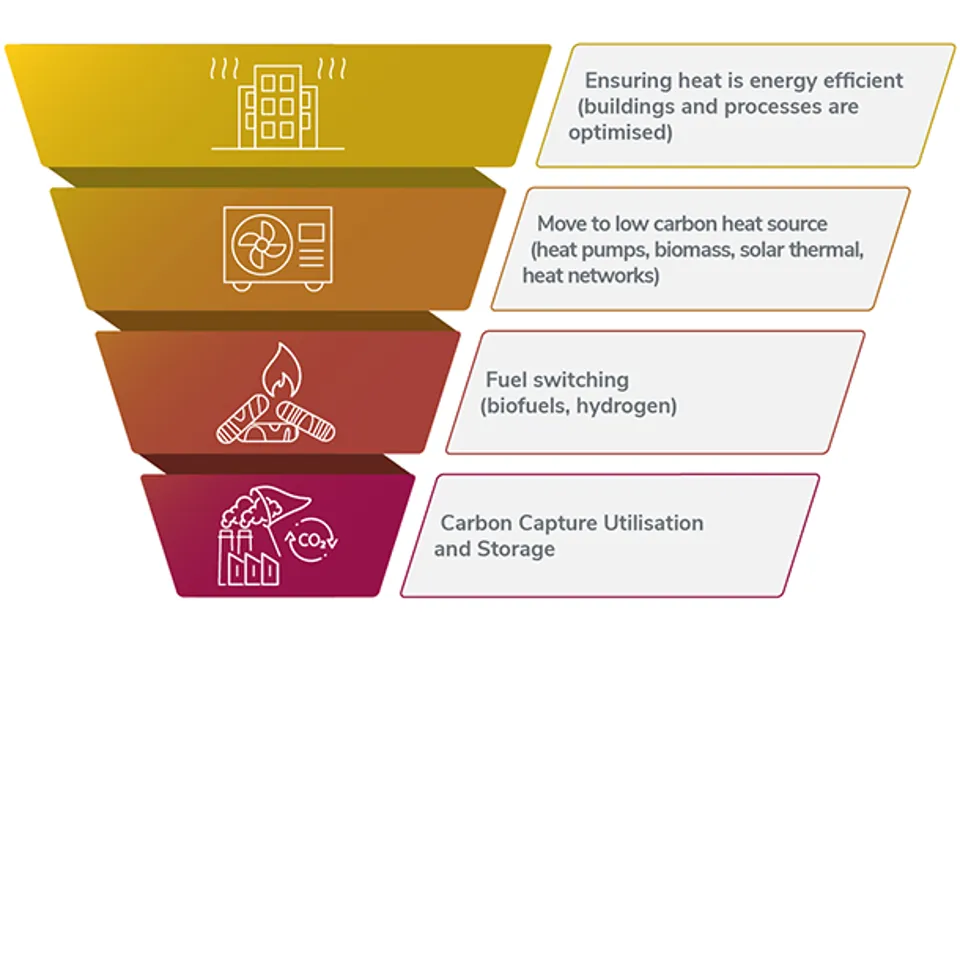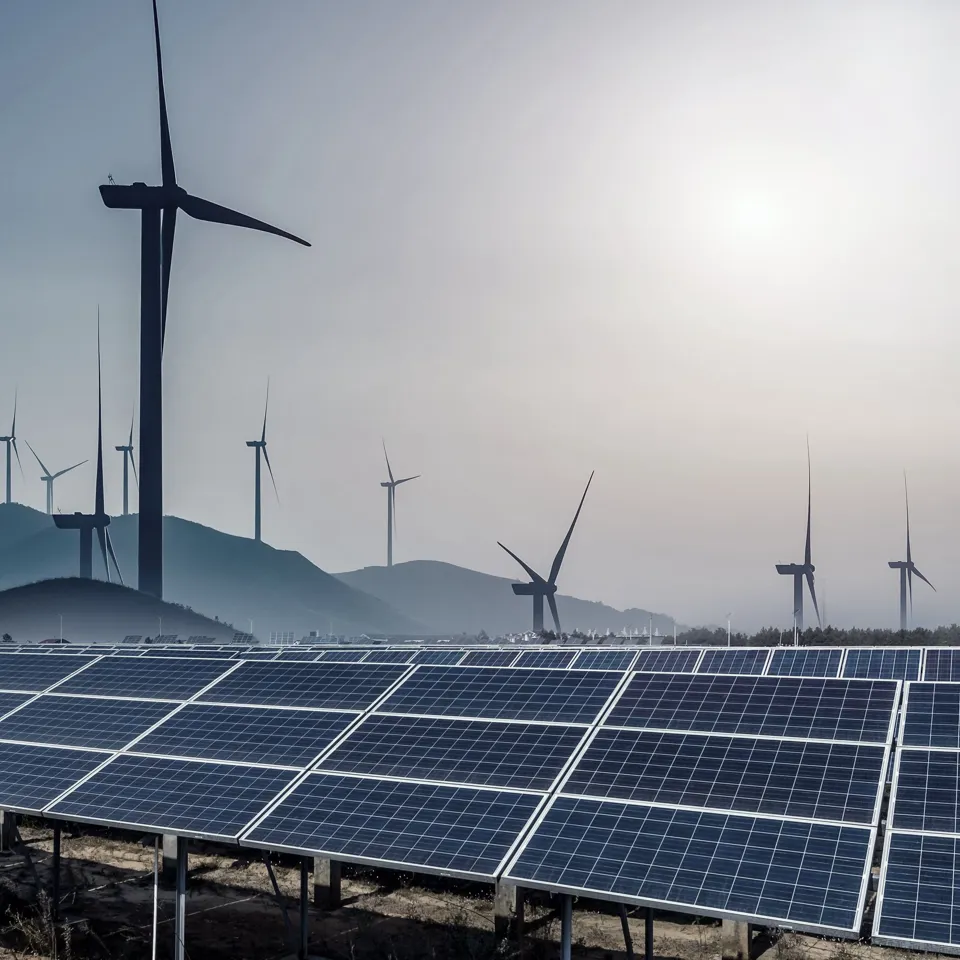Heat decarbonisation
The decarbonisation of heat is facing a major global challenge in its transition to a net zero carbon economy. Ricardo has been providing world-leading expertise and knowledge on all aspects of heat decarbonisation, from policy development through to feasibility and implementation of low/no-carbon heating technologies.
Projects

The role of solar energy in achieving carbon removals and net zero targets
Read insight
The role of carbon capture, utilisation and storage in decarbonising energy from waste (EfW)
Read insight
Climate Finance Accelerator Programme
Read projectOur key capabilities in heat decarbonisation
Contact our heat experts about your decarbonisation plansThere are a number of options available to decarbonise heat, and at Ricardo we have developed a Heat Decarbonisation Hierarchy as a framework to outline the low carbon alternatives that our heat experts can support you with (see across)
As with the use of any resource, the 1st focus should be on reducing how much is used.
In the case of heat, opportunities to improve the energy efficiency of buildings should be a priority, ensuring future low carbon heating is designed to match reduced loads. For industrial heat users, processes should be optimised and opportunities for waste heat recovery explored, with cost effective solutions being implemented.
The next step is to make the transition from fossil-fuel based heating to a low carbon alternative – such as biomass, solar, heat pumps, or connection to low carbon heat networks.
For many industrial heat users, who require higher temperatures, heat pumps are less likely to be a feasible option, and therefore other opportunities such as fuel switching will need to be explored, for example the use of biofuels or hydrogen as alternative to fossil fuels.
Finally, for the most energy intensive and hard to abate sites which include high temperature processes within manufacturing, the opportunity to decarbonise lies in Carbon Capture Utilisation and Storage, including Bioenergy with Carbon Capture and Storage (BECCS), which has the potential for negative emissions.

Combined heat and power (CHP)
Our technical and market expertise supports both governments and private sector clients in understanding the benefits of Combined Heat and Power (CHP) solutions. Our detailed understanding of the complex technologies, policy and regulations enables us to support clients to achieve energy and carbon dioxide emission reduction targets.
Our experts provide advice on combined heat and power (CHP) technologies covering conventional fuels and renewables and the fiscal benefits delivered are in line with the environmental performance.
Support on achieving accreditation systems through our experience of developing and implementing the UK Government's flagship CHP Quality Assurance (CHPQA) programme, as well as validation and auditing of CHP systems in compliance with EU Directives.
Our experts provide techno-economic and financial feasibility studies of CHP systems, helping to support you through the life cycle of your investment.
Our experts provide world-leading expertise and knowledge on all aspects of the design, development, quality assessment and policy development associated with the use of CHP technologies.
We work across all sectors covering all types of CHP technologies and all types of fuels and at all size scales, including emerging technologies such as anaerobic digestion, gasification and pyrolysis.
- The Christie Hospital Manchester. Ricardo was commissioned by Vital Energi to support both the planning application and environmental permitting application for the proposed installation of a new combined heat and power (CHP) unit and additional boiler at the Christie Hospital
- Assessment and identification of optimised heat and power supply options for an industry leading chemical company. The predicted annual cost saving of the installation is £550,000 compared with the site’s current energy spend, giving a payback of around 4 years
- Identification of an optimised heat and power supply solution for a UK food and drink company. Our recommendation provided the client with the opportunity to reduce energy costs by £520,000 per year, rising to £960,000 when a planned site expansion has been completed

Related capabilities
Heat decarbonisation Resources













